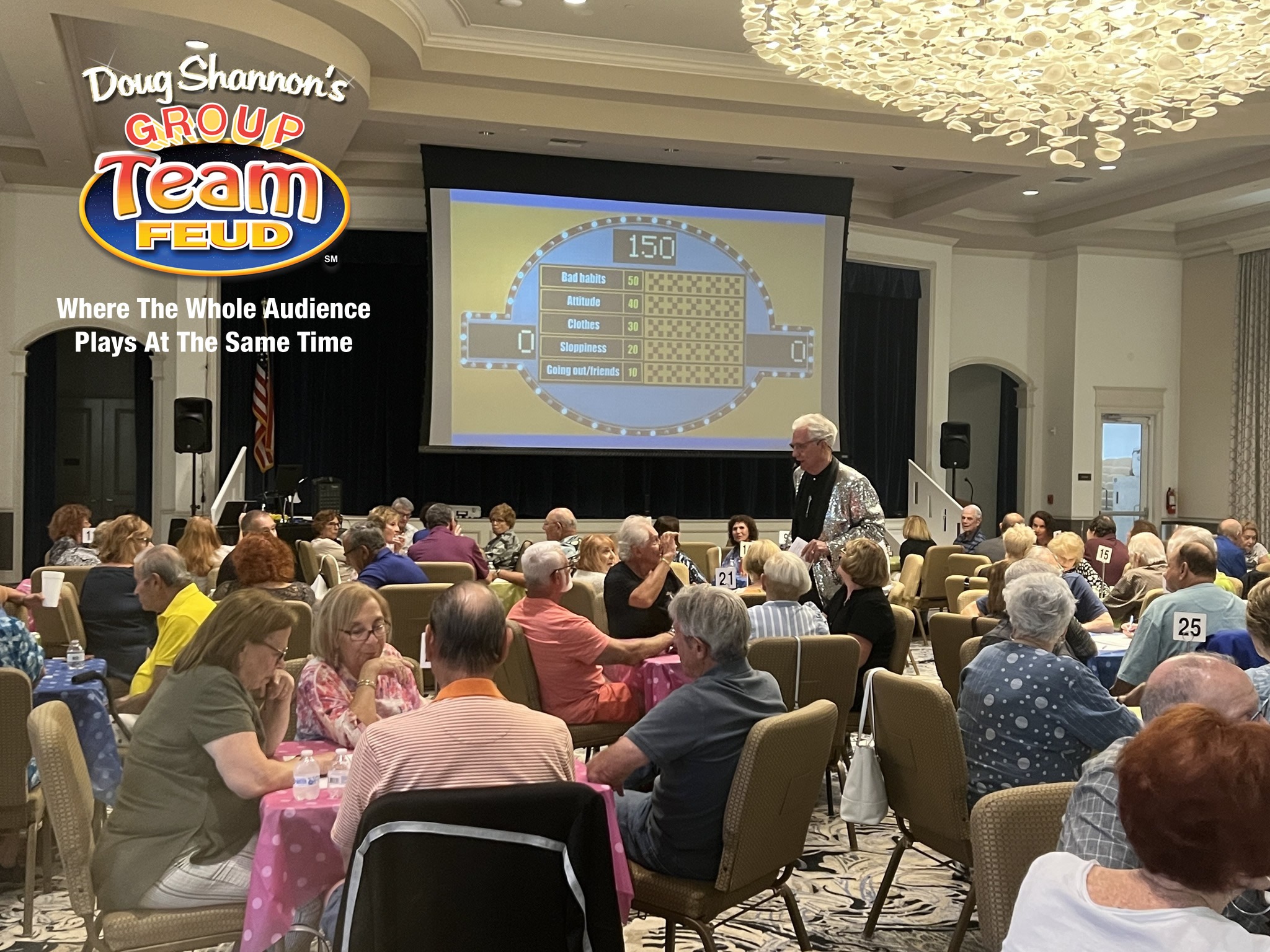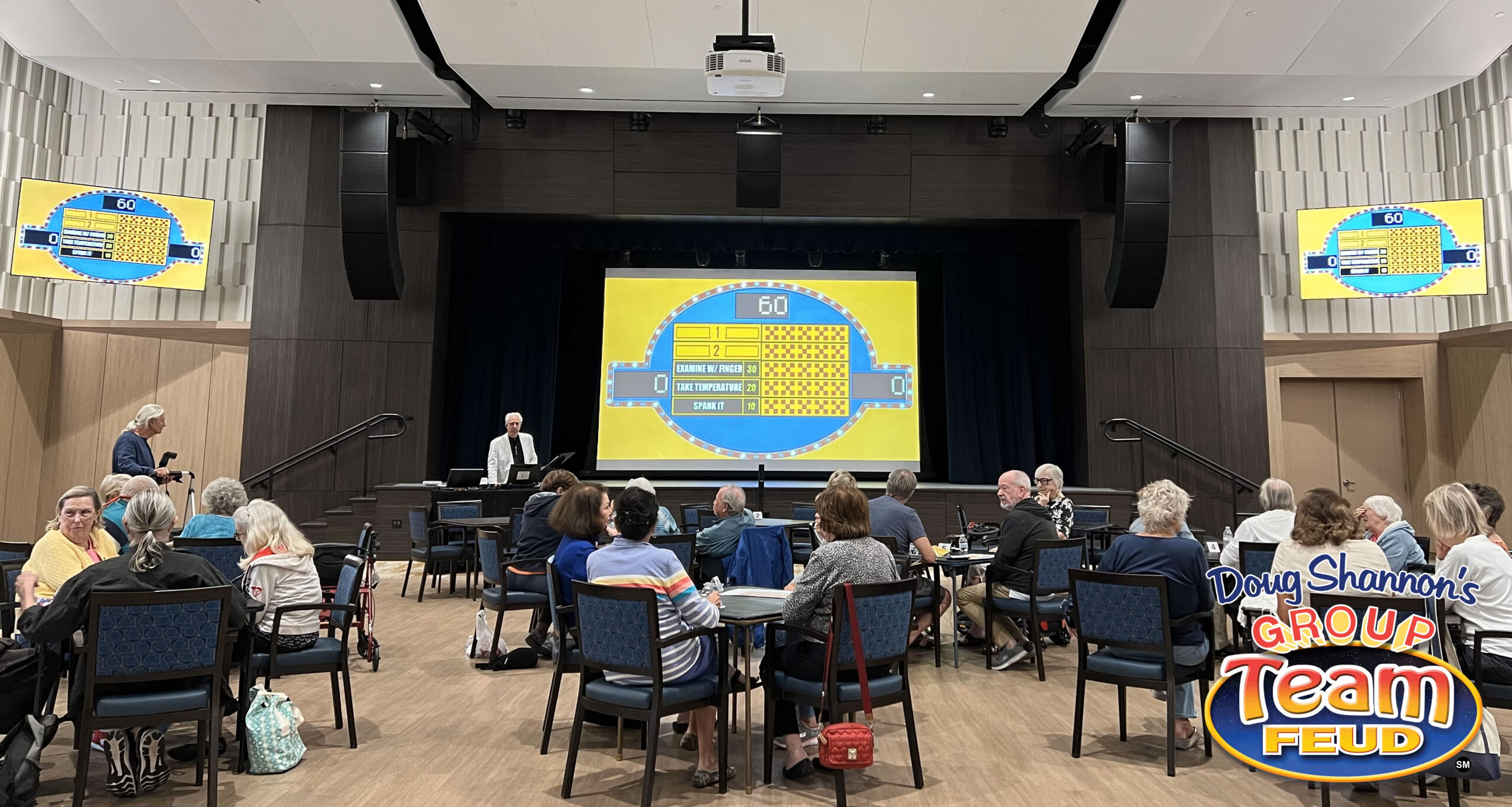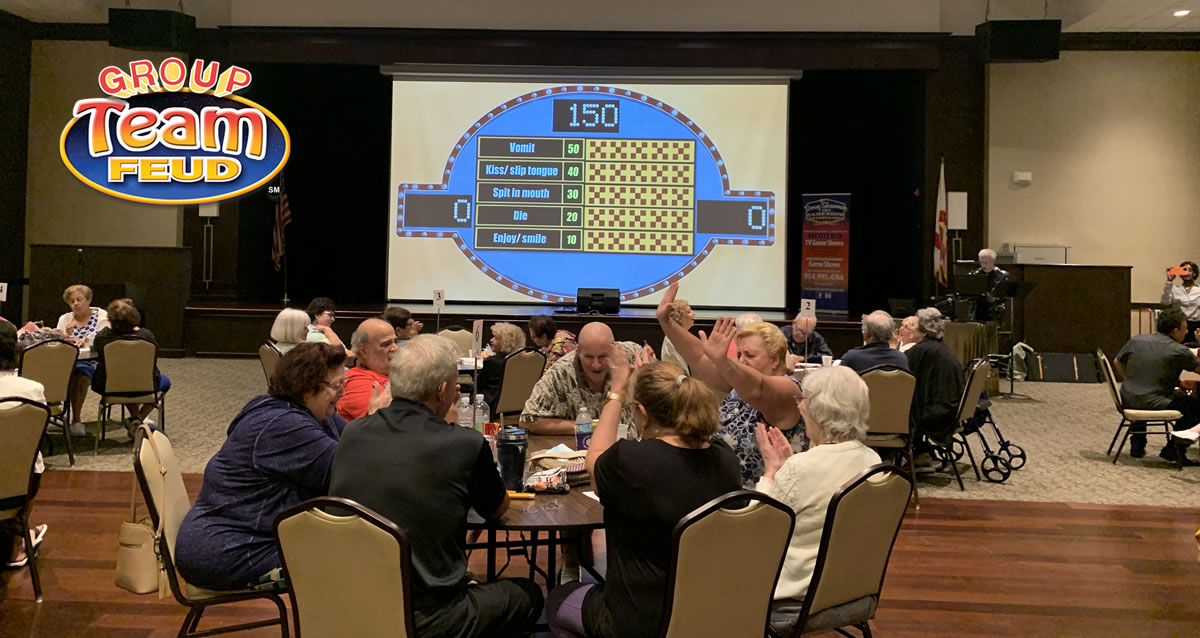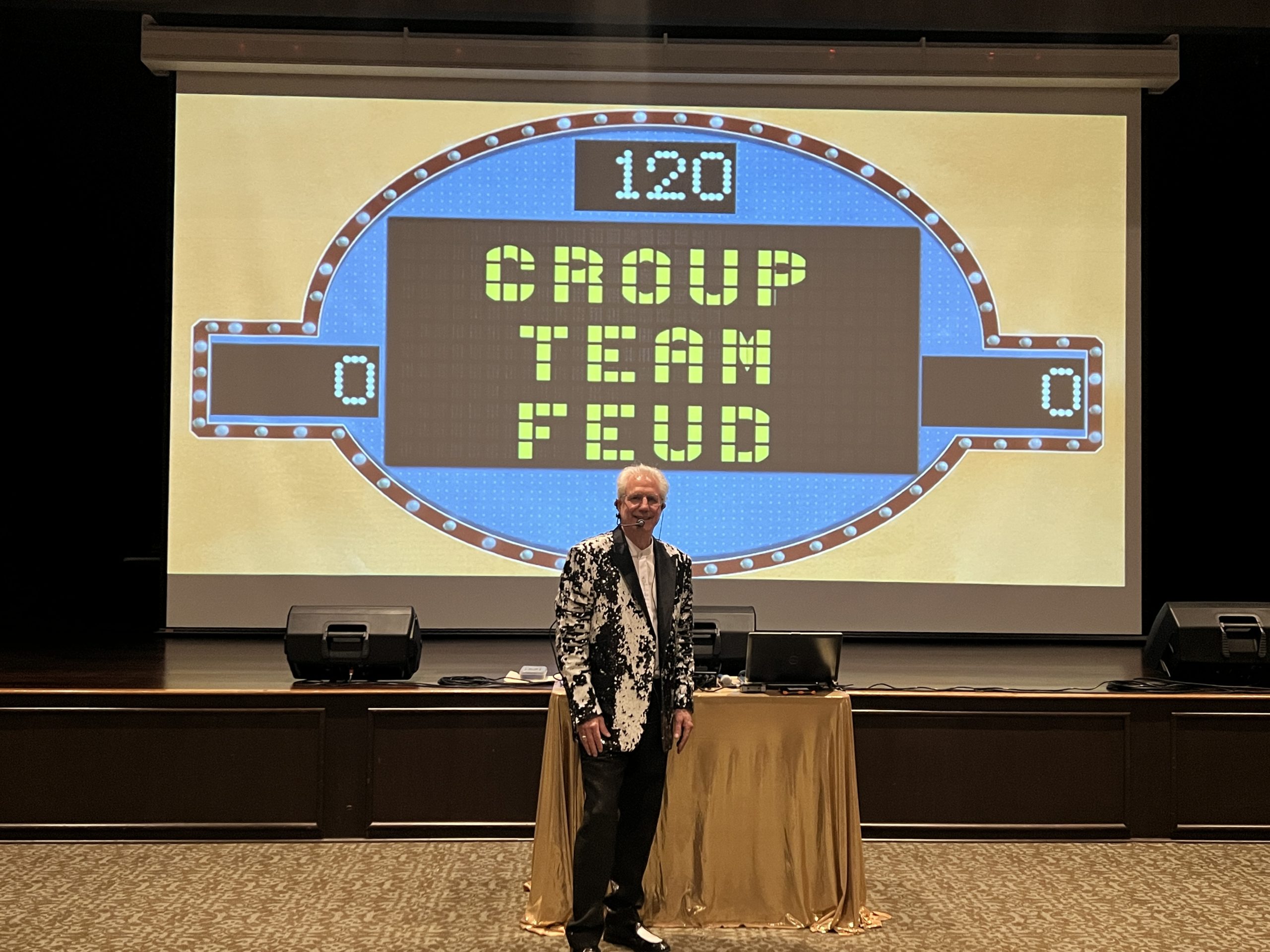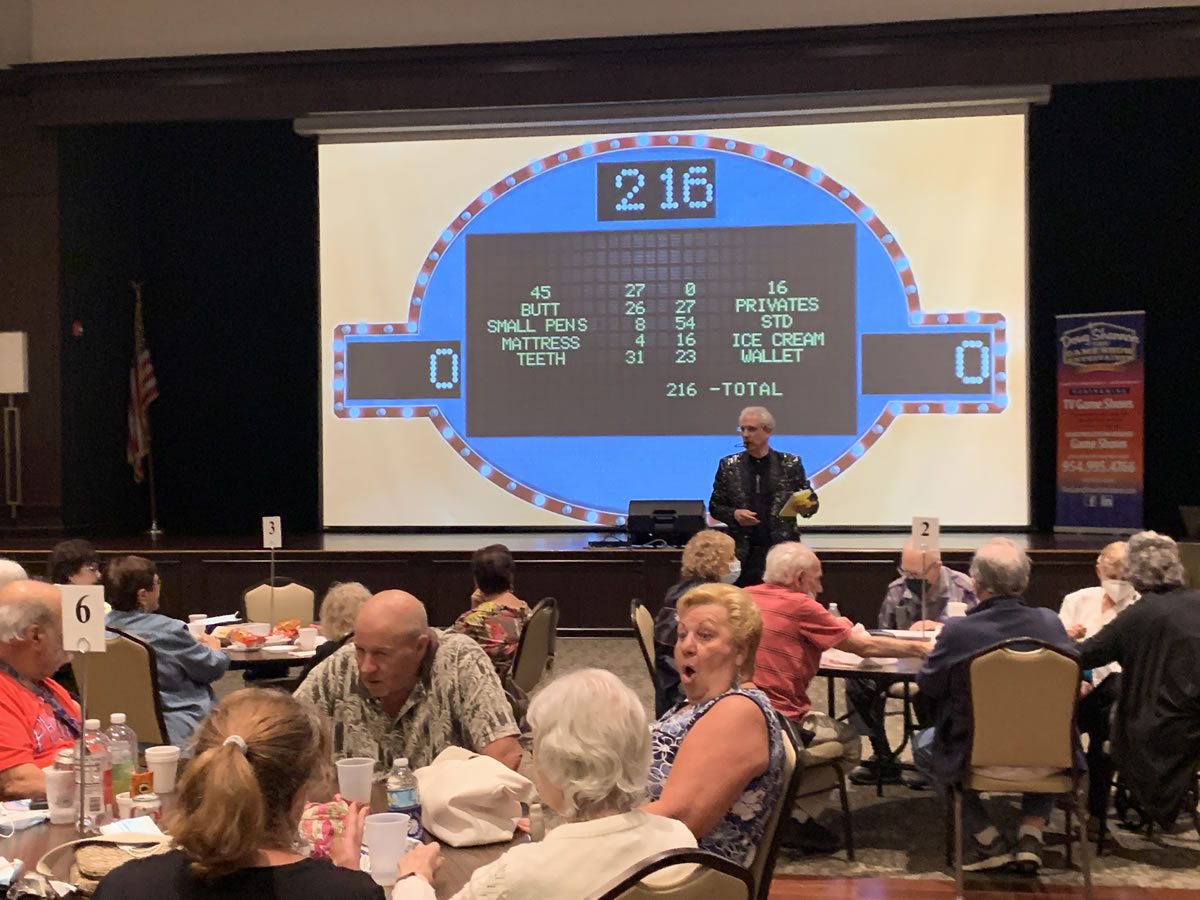Group-Team Feud? What’s that? Well, Doug has two games that are similar to TV’s Family Feud, Group-Team Feud and Team Feud, yet they are different from each other. Both versions, however, are based on using questions from Family Feud’s 100-person surveys.
Let’s see how Group-Team Feud is different from Team Feud.
Team Feud is played with 2 teams of 5 people, just like on TV, and with each game’s round starting with a face-off (To see a more detailed description of this game as well as pictures, click on the tab, Team Feud, on the menu button on this website.).
Group-Team Feud, created and developed by Doug, involves the whole audience playing at the same time – everyone is invited to participate, regardless of the amount of people — in group teams, as designated by tables of no more than 4 to 6 people – it’s tables against tables (see pictures on this page showing this set up).
How is Group-Team Feud played?
Group-Team Feud begins with Doug revealing the first of many questions on the screen for the audience to see, all of which were used on TV’s Family Feud. After Doug reads a question, teams then try to figure out the most popular answers. On a form provided – and while a timer begins to run down – each team distills their responses to what is thought to be the 5 most popular answers, at which time they enter them onto their sheet. Doug then goes on to the next question, and so on – it’s that simple.
Once the last question is completed, the sheets are collected and exchanged with those from neighboring tables. With the use of music and a wide array of sound effects, this is when the official answers to each question are revealed as a countdown, resolving the mystery to each question, one by one. While creating much amusement and enjoyment — as witnessed by people shouting and yelling out as each answer is revealed — this is when the neighboring teams assess the points for each response, and tabulate the final scores for the other teams. Again, it that’s simple!
The two teams with the highest scores are officially proclaimed the winners, 1st and 2nd place. Whether your team wins or not, Group Team Feud is a lot of fun for everyone!
<<< CLICK THE VIDEO BELOW TO SEE HIGHLIGHTS OF THIS EXCITING GAME SHOW, GROUP TEAM FEUD >>>






